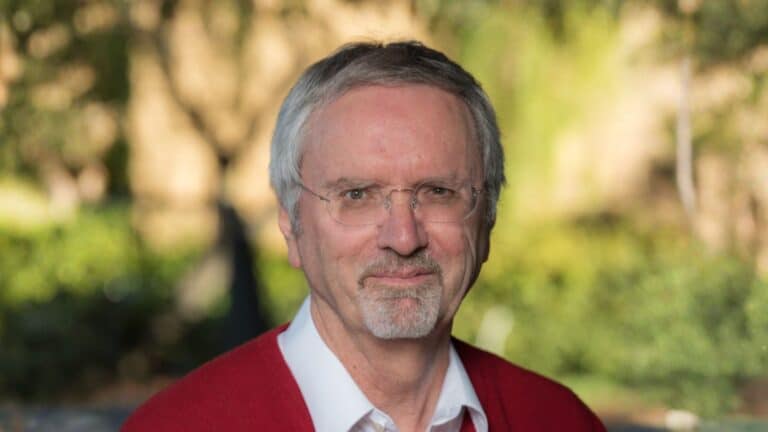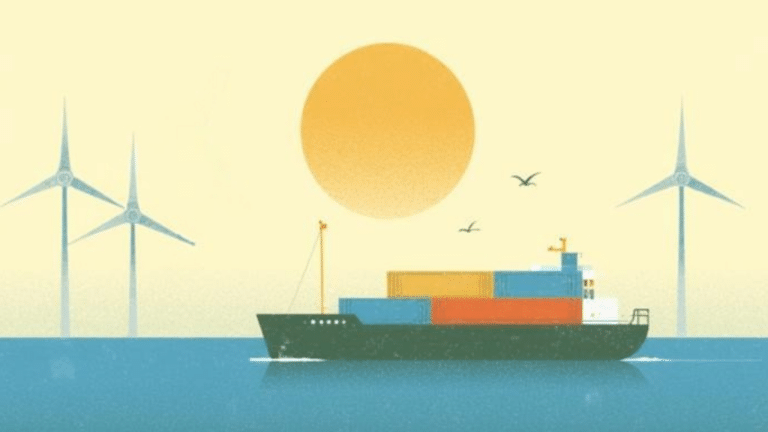This website uses cookies as well as similar tools and technologies to understand visitors’ experiences. By continuing to use this website, you consent to Columbia University’s usage of cookies and similar technologies, in accordance with the Columbia University Website Cookie Notice.
Beyond the Paris Agreement: The Art and Science of Climate Negotiation
Climate change is an urgent challenge. We are nowhere on track to meet the targets of the Paris Agreement in countries around the world. Action depends not just on reducing emissions here at home, but meeting rapid economic growth around the world – China, India, Southeast Asia – while decarbonizing the global energy mix far more quickly than we are today.
In this edition of Columbia Energy Exchange, host Jason Bordoff is joined by Jonathan Pershing. Jonathan has been a key architect of the world’s landmark climate change deals, including securing the 2015 Paris Climate Agreement. He served as Special Envoy for Climate Change at the U.S. State Department, was lead U.S. negotiator to the United Nations Framework Convention on Climate Change, and was a senior advisor to the Secretary of Energy, Secretary of State, and the White House. He’s also worked at leading organizations like the World Resources Institute and the International Energy Agency.
Jonathan holds a PhD in geology and geophysics; and is now doing innovative work putting the resources of the Hewlett Foundation to work addressing our global environmental and climate challenges.
Jonathan and Jason sat down to discuss the role of government policy to send market signals, various approaches for addressing the variability of renewables, the practical impact of the U.S. withdrawal from the Paris Agreement, and much more.
More Episodes
Oil and Venezuela: What’s Next?
Early on January 3, 2026, the United States apprehended Venezuelan President Nicolás Maduro and his wife and removed Maduro from power. Maduro was transported to New York, where he now faces federal charges of narco-terrorism and drug trafficking.

Editor’s Pick: Sean Casten on US Energy Policy in a Partisan Era
This has been a crucial year for US energy policy. The passage of the One Big Beautiful Bill Act eliminated many of the clean energy incentives that were...

Luisa Palacios and Eddie Fishman on the US Pressure Campaign on Venezuela’s Oil
Over the past week, President Trump has intensified pressure on Venezuelan president Nicolás Maduro by targeting the regime’s economic lifeline—oil. The United States has seized two oil tankers...

From Hot Rocks to Clean Power: Roland Horne on the Future of Geothermal
If it seems like you're hearing a lot more about geothermal energy lately, that's because this clean, firm energy source is at a technological turning point. With roots...

Relevant
Publications
Why ‘Taking’ Venezuela’s Oil Hurts U.S. Energy Security
In discussing the dramatic seizure of Venezuelan President Nicolás Maduro and his wife, Cilia Flores, over the weekend, President Donald Trump declared that the United States would now “take back” the country’s oil. Yet he has offered little clarity on what exactly this means.

Venezuela: The Post-Maduro Oil, Gas and Mining Outlook
The country could see a relatively rapid recovery of some oil production, depending on the leadership that emerges.

Q&A on US Actions in Venezuela
Early on 3 January 2026, the United States launched a military operation to arrest President Nicolás Maduro and remove him from Venezuela.

Trade’s Emergence at International Climate Talks and the Limits on Consensus
This Energy Explained post represents the research and views of the author(s). It does not necessarily represent the views of the Center on Global Energy Policy. The piece...

